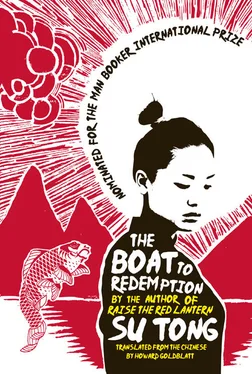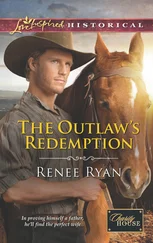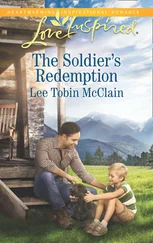On the river and on the shore, I was a captive of Father’s shadow. My trips ashore were tightly controlled, my freedom severely restricted. He limited the time I could spend off the boat to two hours, one of which was for buying provisions, taking a bath, getting a haircut and visiting the public toilet. The remaining hour was to be devoted to carrying out his instructions: checking the fleet postbox, and going to the General Affairs Building to see if any political work teams were coming to town from the district headquarters. The arrival of one of those teams was a special occasion that required special arrangements, and I was to head back to the barge and tell him without delay if one came. He would then break his own rule by going ashore. If a team arrived in Milltown, he’d hand over eleven years’ worth of reports on his ideological progress and detail the unjust treatment and misfortunes he’d suffered during that period.
Before going ashore I’d put whatever I needed in my bag, then take pains to make myself as presentable as possible. Father reminded me to wear my wristwatch. ‘I see you’ve polished your shoes. Well, keep your eyes off your shoes and on your wristwatch.’ Then he pointed to the alarm clock in the cabin and re-stated his rule. ‘I’ll be watching that clock,’ he said. ‘Two hours, no more. Last time you were fifteen minutes late coming back. Don’t let it happen again.’ I climbed out of the cabin, bag in hand, but stopped in the hatchway and turned for one more instruction: ‘Let me see you,’ he said.
I knew what he meant by that. Sucking in my gut, I shook my trousers and said, ‘OK, take a good look. See anything out of order?’
With concern in his eyes, he looked at my crotch. ‘What kind of attitude is that? It’s for your own good. Be careful out there. Don’t go anywhere you’re not supposed to go or do anything you shouldn’t.’ That left only the final ritual. I raised my eyes towards the image of the martyr hanging on the wall, as he said in a sombre voice, ‘Whatever you do, always remember your lineage. Shaming me doesn’t count for much, but don’t you dare besmirch the reputation of Deng Shaoxiang!’
Over our eleven years on that barge, people — me included — had pretty much forgotten Father’s and my status. Except for on River Day, the twenty-seventh of September each year, and the infrequent occasions when I walked past Milltown’s chess pavilion, I had all but forgotten that I’d once had the honour of being Deng Shaoxiang’s grandson and that we’d enjoyed the status of being a revolutionary martyr’s descendants. Father defended his glorious bloodline like a drowning man vainly clutching a leaky life-raft. I was baffled by my bloodline. Father had been registering appeals over the bloodline issue for eleven years, but I had no place to appeal to. I was Ku Dongliang, and Ku Dongliang was Ku Wenxuan’s son. If he was not Deng Shaoxiang’s son, then I was not her grandson. And if somebody like me was not the descendant of a martyr, I was a kongpi . And if I was a kongpi , what relationship could I ever have with Deng Shaoxiang? That being the case, what could I possibly do to vilify her name?
My bloodline held no fascination for me. I was too caught up in my concern for Huixian, and that constituted the greatest betrayal of my father’s wishes from my youth onwards. That betrayal brought me no rewards. Huixian’s attitude towards me bounced back and forth from cold to hot. Maybe she wasn’t interested in me — I could deal with that. But I had to know who she was interested in.
As I was going ashore I saw Six-Fingers Wang’s daughters Big and Little Phoenix on the deck of their barge, drying mustard plants. Big Phoenix was standing with an armload of plants and looking at me with fire in her eyes. ‘Look at you, all dressed up. Off to find a bride?’
Regardless of how bold Six-Fingers’s daughters were, or what they said to sound me out, or whether they were wearing shorts and revealing vests, you have my word that I would never have given either of them a second look. Big Phoenix took being ignored in her stride, but Little Phoenix felt a need to take up the fight on behalf of her sister. ‘If you haven’t got anything to do,’ she said, ‘go and talk to the river, but don’t waste your breath on him. Everybody knows what he does over there. He hangs out at the barbershop like a moron waiting to snag a wife, or like a toad wanting to feast on swan!’
No question about it, Desheng’s wife had not been able to keep her mouth shut, and my secret was now public knowledge. Sooner or later it was bound to reach Father’s ears, and maybe sooner than I imagined, if he was within earshot of Little Phoenix’s shouts.
Suddenly laden with worries, I walked faster, in case Father came out and called me back. I hustled past the piers, where I heard Li Juhua reciting poems inside the oil-pumping station. ‘Youth, ah, youth, you are a flame that burns for Communism! Burn on!’ On my way past, she burst through the door, just like a flame, and nearly crashed into me. ‘What’s your hurry?’ she said. Where’s the fire?’
I smiled. ‘You’re reciting poetry. Is there going to be a theatrical festival?’
Apparently, she didn’t want me to know why she was reciting poetry, so she shook her head, sending her pigtails in motion, and said, ‘Ku Dongliang, how about going to the general store and buying a couple of rubber bands for me. Mine are about to snap.’
‘No time,’ I said, ‘can’t do it.’
She snorted. ‘No time? You, Ku Dongliang? Except to spend a couple of hours sitting in the barbershop. You ought to take advantage of your trip to read a paper or shoot some hoops, do something healthy for a change. Is there a circus troupe living in the barbershop? Aren’t you afraid people will talk if that’s the only place you ever go?’
Though that bothered me, I kept my cool and said, ‘People will talk? What do you think I do there? I get a haircut. That’s not against the law, is it?’
I went to the People’s Barbershop for a haircut, but I wouldn’t let Huixian do it. Old Cui cut my hair, and in his chair I felt as if I were the sunflower and Huixian the sun. I turned to face her, wherever she was. ‘Sit still,’ Old Cui would say as he turned my head back, ‘and quit looking where you’re not supposed to. Keep your eyes on the mirror.’ So I looked at the mirror, and my gaze was transformed into a sunflower that struggled to turn to the sun, usually squinting at Huixian out of the corner of my eye, which gave me a strange, ugly appearance. When Old Cui glanced in the mirror and saw what I was looking at, he thumped me on the shoulder. ‘Watch out, Kongpi, or your eyes will fall out of their sockets.’
Ah, the mirror had revealed my secret, so I went over to get a newspaper and covered my eyes with it. Running short of patience, Cui tore the paper out of my hands and tossed it to the floor. ‘High officials can read the newspaper when they’re getting their hair cut, not you.’ Knowing what was on my mind, he didn’t like it one bit, and he took his disgust out on my scalp. He cut everybody else’s hair with tender concern, but not mine. To him my head was a dark, bleak patch of ground, which he attacked with scissors in one hand and clippers in the other, like a reaping machine. And there was nothing I could do about it, because when I complained that it hurt, he stopped, turned to Huixian, and said, ‘Here, take over. The people from the Sunnyside Fleet are too much trouble. I’m turning them all over to you.’
Huixian would shoot me a quick glance before smiling ambiguously at Old Cui and saying, deftly masking her attempt to get out of it, ‘You’re a model worker, Old Cui. No one can compete with you, so you go ahead. Besides, he won’t let me work on him anyway.’
Читать дальше












